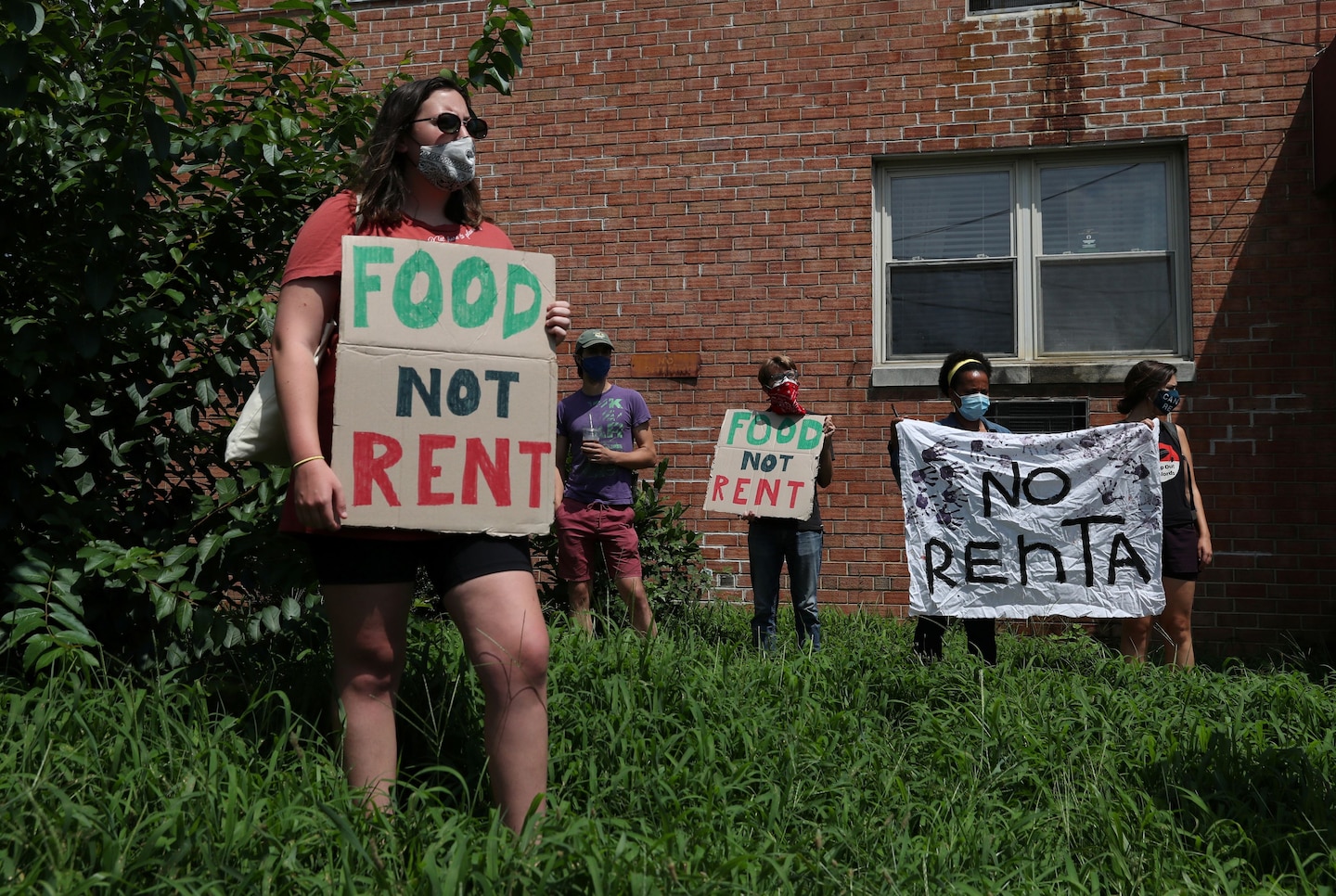Trump says he’s ‘stopping evictions.’ Here’s why they’re still happening.

But across the country, evictions are continuing.
In New Orleans, city courts have received more than 500 eviction complaints since late mid-June when a state eviction ban was lifted. There are no signs of it slowing down after Trump’s action, local officials say.
In Milwaukee, where thousands of people are still waiting for unemployment benefits, legal aid attorneys discussed presenting Trump’s executive order to judges in the hope of stopping the recent spike in local evictions but determined it would not work.
Trump’s order was appreciated, but there was “nothing definitive that the court could act on,” said Colleen Foley, executive director of Legal Aid Society of Milwaukee. “I hope there is something coming down the pike, [but] right now we can’t act on it.”
Trump’s executive order directed some regulators to study whether an eviction moratorium was necessary and others to investigate whether they could appropriate money for rental assistance. But it fell short of reinstating the federal eviction ban that prohibited evictions of 12 million renters in government-backed properties expired last month, as many had expected.
That gulf may confuse renters already grappling with the daunting eviction process, say housing advocates.
The order “does almost nothing. It’s an empty shell,” said Diane Yentel, president of the National Low Income Housing Coalition. “It risks doing more harm than good by giving people a false impression that Trump is doing something to prevent evictions.”
So far, regulators cited in the order haven’t developed a plan to deal with the expected rise in evictions.
It called on the Department of Health and Human Services and Centers for Disease Control and Prevention to “consider” whether an eviction moratorium was necessary. In a statement, HHS declined to comment on what powers it had to halt evictions or what steps it was taking to address the issue.
Another regulator named in Trump’s executive order, the Federal Housing Finance Agency, said it was “reviewing its authorities” after being ordered to determine what powers and resources it has to prevent evictions. The departments of Housing and Urban Development and Treasury were ordered to identify federal money “to provide temporary financial assistance to renters.”
HUD says it is in close contact with the White House but didn’t offer any specifics. Treasury didn’t respond to an email seeking comment.
Asked whether the White House was concerned about giving renters false hope, spokesman Judd Deere said in an email the president had taken action to help struggling families and that the “administration is developing this policy and implementing the President’s Executive Order.”
This comes as lawmakers, economists and housing advocates grow increasingly concerned that millions of renters could lose their homes as the pandemic continues. Trump’s executive order notes that with the end of the federal eviction moratorium last month “there is a significant risk … [of] an abnormally large wave of evictions” that could disproportionately harm Black and Hispanic renters.
“While not a solution, [the executive order] is a valuable step in the right direction for the president to publicly recognize the importance of addressing this issue immediately,” said David M. Dworkin, president of the National Housing Conference.
But housing advocates worry that millions of renters could be evicted in the meantime.
Democrats have pushed for a reinstatement of the federal eviction moratorium but say it will be effective only if it comes with billions in rental assistance. Without that financial help, once the moratoriums eventually end, millions of renters will owe months of back rent they can’t afford, delaying their eventual eviction while leaving landlords to absorb the shortfall, they say.
Key Republicans, including Sen. Mike Crapo (R-Idaho), chair of the powerful Banking Committee, appeared open to the idea of a rental assistance program last week. But negotiations on the next stimulus package have since stalled.
Jennifer Rivera, who lost her job as a home health aide in Pennsylvania in May because of the pandemic, says her landlord has ordered her to leave by the end of the month. After falling behind on rent, Rivera said she used her enhanced unemployment benefits to catch up. But the extra $600 a week in benefits has run out, and her landlord delivered a letter July 29 ordering her to leave after she filed a complaint with the city about the condition of her apartment, she said.
“The city says it’s a scare tactic,” Rivera said of the 30-day eviction notice, noting that the landlord hasn’t filed an eviction complaint in court yet. But Rivera says she is worried that a protracted battle with her landlord would harm her credit rating and make it more difficult to find a new home. Losing her home could also mean moving her children to a school district without the proper resources to help her son with autism, Rivera said.
“I feel stuck. I don’t want to stay here, but I have nowhere to go,” Rivera said. “I have two weeks before they want me out.”
Rivera’s landlord, Hometown Property Management Services, said it couldn’t discuss specific tenants. Evictions are a last resort, said Sam Gorgone, the company’s owner and founder. Delinquencies are higher than normal, but most tenants have been able to establish an arrangement with the owner of the property, he said. “We’re not trying to displace anybody,” he said.
Concerned about the end of the federal eviction moratorium? Have additional questions you’d like to see addressed in this FAQ or others? Send an email to caresacttips@washpost.com.






